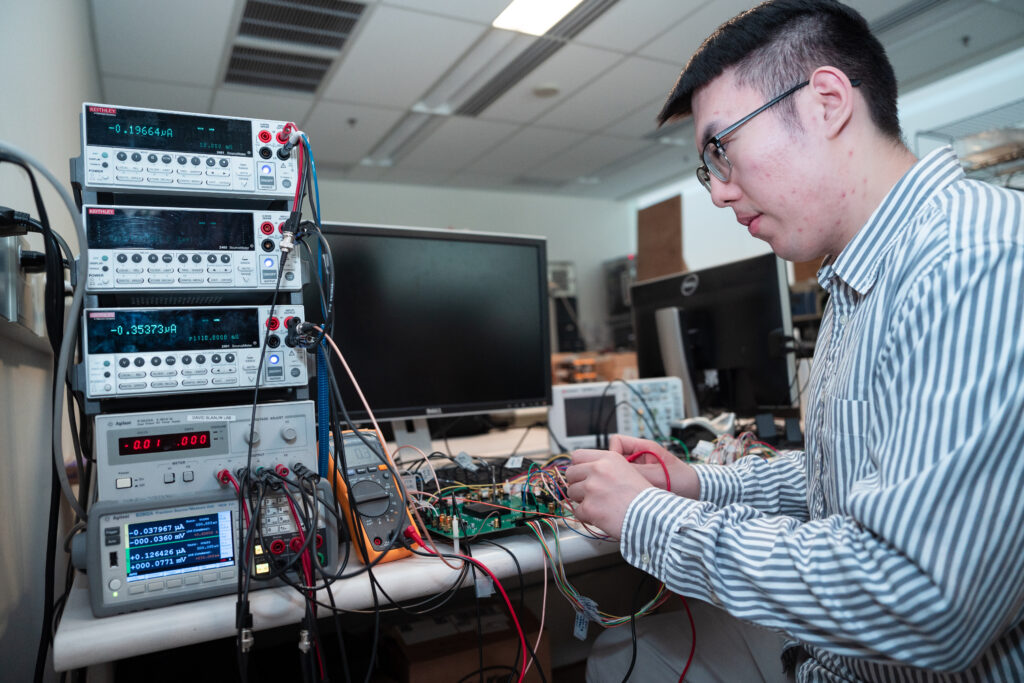
Researchers at the University of Michigan are leading a collaborative initiative with Semiwise Ltd., a Glasgow, UK-based company, to develop low-power and cryogenic control electronics, with the ultimate goal of scaling quantum computing for more practical applications.
“We’d like to bring our expertise in low-power classical computing to a new and exciting domain, namely to efficiently provide control, error correction, and other key functions for emerging quantum computers,” said Dennis Sylvester, Edward S. Davidson Collegiate Professor of Electrical and Computer Engineering (ECE).
Quantum computing has the potential to exponentially increase scientists’ ability to model complex simulations, which could revolutionize a myriad of industries including drug development, financial risk profiling, supply chain optimization, and more. However, these promises of quantum computing require significant improvements in the efficiency and reliability of existing technology.
Qubits, the essential units for quantum computing, are typically kept at temperatures near absolute zero, generally around 4 K (-269.15 °C; -452.47 °F). Conversely, the control electronics for the computer operate at room temperature, requiring the cryogenic qubits to be kept at a distance and wired out to the other components of the computer. This arrangement drastically decreases efficiency, increases energy consumption, restricts computing power, and limits the practical uses of quantum computers.
Sylvester and ECE PhD student Qirui Zhang aim to design control electronics that can be used at the frigid temperatures qubits require. However, redesigning the silicon chips and simulating their performance in cryogenic conditions requires substantial time, effort, and funds––prior to building the control electronics. The team aims to fast-track the development of cryogenic control electronics by partnering with Semiwise.

Semiwise, a startup spinoff from the University of Glasgow by Prof. Asen Asenov, has developed a set of Process Design Kit (PDK) strength for SPICE (i.e., simulation program with integrated circuit emphasis) models suitable for cryogenic circuit design. The models, based on GLOBALFOUNDRIES 22FDX PDK, are derived using a patented methodology, combining cryogenic transistor measurements with Technology Computer Aided Design (TCAD) simulations. The PDK includes corners and statistics and is consistent with the post-layout verification requirements.
“Taking standard CMOS down to 4K or -270°C is a major step into new territory where the operating characteristics of the transistors change markedly,” said Asenov, “The cryogenic chip design will not only unleash the true power of quantum computers but could also increase significantly the energy efficiency of the data centers in the transition to a net zero economy.”
This new partnership between the University of Michigan and Semiwise makes them a contender in the race to improve the practicality of quantum computing for generalized use.
“Everything’s new and unknown,” said Zhang. “We are building up the methodology for how to use the superconducting qubits. Our first priority is quality and robustness to maximize the fidelity of controlling that qubit and minimize any potential corruption to the qubit state.”
Next steps for the team include using the SPICE models to build cryogenic control systems from the ground up. Zhang will be continuing this work as a postdoctoral researcher in Sylvester’s research group.








